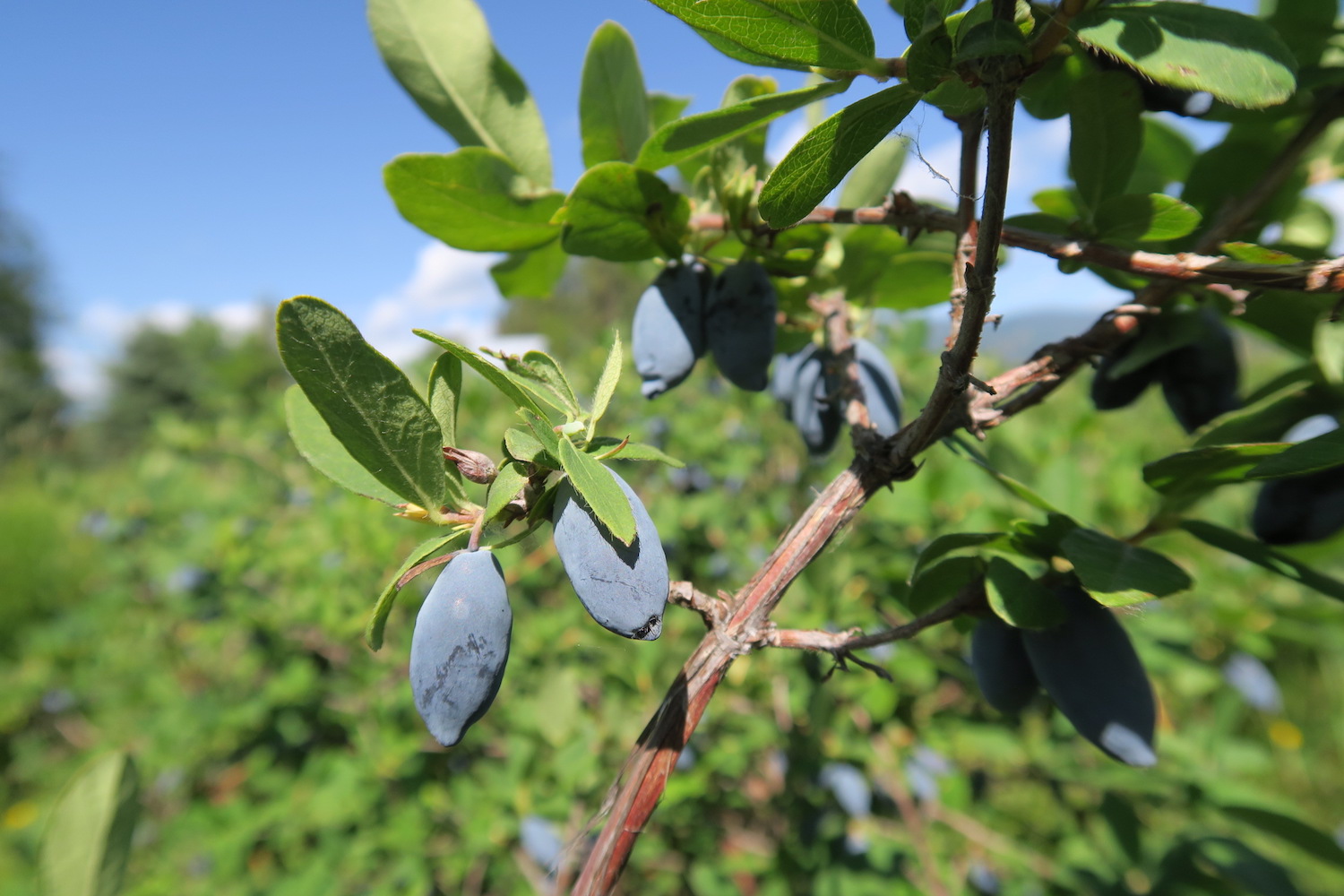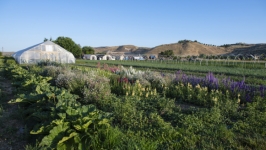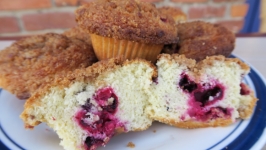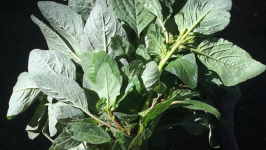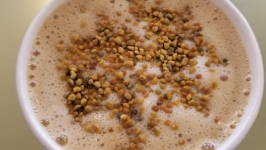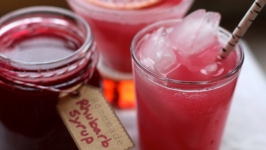North Idaho Haskaps
The first sip is refreshingly cold and bubbly. THe scent of champagne takes over until a hint of tartness comes through on the tongue. Fruit—a tangy, bright taste of fruit. The pinkish-purple mimosa gives a visual hint of raspberry, but the flavor goes deeper. Not quite a huckleberry, but more satisfying than a blueberry.
It’s the first taste of a haskap, and no one descriptor can entirely encompass this little-known berry’s complex flavor. Haskap farmers Karen Forsythe and Judie Conlan—co-owners of Legacy Farms NW in Kootenai, and members of Idaho Preferred, just five minutes east of Sandpoint—are the masterminds behind the tangy, fizzy concoction. Forsythe also owns Di Luna’s Café in downtown Sandpoint, home to the Sweet Tart haskap mimosa, and both of her businesses are part of the Idaho Preferred program that identifies and promotes food and agricultural goods produced in the state.
The Legacy Farms NW haskap farm began in 2009 when Dr. Danny L. Barney, a horticulturist with the University of Idaho’s Sandpoint Research and Extension Center, needed a new home for his domesticated haskap plants. The university had decided to dissolve his program, and having taken Barney’s master berry grower class, Forsythe stepped up. She and Conlan took on hundreds of young haskap shrubs, planting them on almost two acres.
Barney worked to create a hybrid of haskap ideal for North Idaho’s climate through the propagation of seeds from both Ukranian and Japanese varieties.
“We figure we’ve got hardiness from the Ukraine [seeds] and the flavor from the Japanese,” Conlan says.
Haskaps are as common around the breakfast table in Japan as blueberries are in the U.S., Forsythe says. The name haskap comes from the Japanese “haskapu,” meaning roughly “little gifts on the ends of the branches.”
The oblong, olive-sized purple fruit has also taken off in Canada, becoming a common ingredient in ice cream, liqueurs and more. While there may soon be a market for exporting haskaps to Japan, Conlan says it’s not happening for the U.S. quite yet.
“In the meantime, they’re a wonderful berry just for a domestic garden,” she says.
They may be the perfect berry for the less-than-perfect gardener. Haskap plants need very little attention, and don’t invade other plants like raspberries or blackberries tend to.
“They’re not fussy like blueberries,” Conlan says. “They prefer average soil. They do well in the shade.”
Farmers and domestic gardeners interested in trying a hand at haskaps can buy young plants from Legacy Farms NW as several in the Idaho Panhandle already have.
The haskap shrub’s carefree attitude toward its environment is also conducive to undiscriminating pollinators. From bumble and honeybees to unintentional pollinators like wasps, the farmers said the whirring of insects brings their field to life all spring long.
“The bumblebees love the haskaps,” Forsythe says. “When I mow between the rows as they flower, [I hear] just one big buzz of bees.”
At the suggestion of Barney, Forsythe and Conlan planted clover between the haskap rows to encourage pollinators. The berries are grown with organic practices—no spray or chemicals of any kind. The farm is also located near a U-pick blueberry farm and a few beekeepers.
“We keep the pollinators busy,” Forsythe says of the neighborhood.
A stroll through the Legacy Farms NW haskap field in mid-July confirms that pollinators in the area have been working hard. Shades of deep purple and dusty blue peek through the green foliage of the chest-high shrubs. Conlan leads the way to a row she spent time picking from the day before in order to make haskap muffins, and it appears she didn’t even make a dent. It’s a high-yield year, no doubt thanks to the bees keeping Forsythe company as she mows.
The two farmers meander through the rows, snacking on the fruits of their labor and detailing the effort it took to propagate and name the many varieties now on display in full force: Triumph, Sapphire, Reliant, Treasure, Valiant. Each has a slightly varying shape, size and flavor profile, and all are protected under their BonnerBlue haskap trademark.
After 10 years in the haskap business, both agree their love for the work comes down to the oblong purple jewels in their palms.
“It’s a good product,” Conlan said. “And it’s a healthful product.”
Emerging research confirms what the Japanese have known for centuries: haskaps may very well be the superfruit for tougher climates. According to a 2018 study from Dalhousie University in Nova Scotia, Canada, haskaps contain more vitamin C than fruit better known for the immune-boosting compound, like oranges and strawberries. Haskaps are also a significant source of cyanidin-3-O-glucoside (CG3), which possesses “antioxidant, cardio-protective, anti-inflammatory, neuroprotective, anticancer and anti-diabetic properties,” according to the Dalhousie study.
From hardiness to flavor, health benefits to versatility, it seems Barney’s vision to domesticate the perfect haskap is alive and well in North Idaho.
“We had the property to have this project, and it had been so important to Barney,” Conlan says. “It’s not only an opportunity for us, but it’s a way we could further his goal. His dream.”
The unique tang of Di Luna’s haskap mimosa along with Conlan’s perfectly sweet haskap muffins make it apparent that the haskap has found a happy home with Legacy Farms NW. Forsythe and Conlan plan to continue educating fellow farmers and other local food and drink craftsmen about the nearly unknown berry.
“That’s my excitement,” Forsythe said. “To share them.”
Legacy Farms NW
Idaho Preferred | @idahopreferred
Di Luna’s Café
Sandpoint Research and Extension Center
This article was funded through a partnership with Idaho Preferred. Edible Idaho retained control of its content. For more information on Idaho Preferred, visit IdahoPreferred.com


